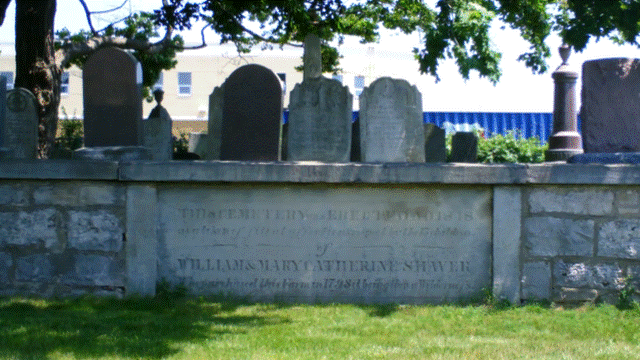 The Shavers of Ancaster and the War of 1812, Part 2
The Shavers of Ancaster and the War of 1812, Part 2
Guest post by Fred Blair
Sgt. Henry Shaver (1789-1860)
Some of the documents that I use in my research are online on the Library and Collections Canada (LAC) page at LAC - Microform Digitization. In later Blogs, I will write about other document sources. This Blog is an introduction to the Militia documents in Collection 27: War of 1812: Upper Canada Returns, Nominal Rolls, and Paylists, RG 9 1B7. I will come back to Collections 21 and 25 later.
A Return or Nominal Roll may have been a list of names or numbers. A Paylist was usually a payroll for a militia company or detachment. Payrolls are the most useful for family historians. The title usually named the commanding officer and the pay period. In the body of the payroll was a list of men’s names and ranks, the dates they served, the total number of days served, the rate of pay, the total pay, and Remarks. Payrolls usually did not tell us what the men were doing or where they were serving. For a number of reasons, not all payrolls survived, but in some cases a number of copies of the same payroll are still available. As these copies were transcribed by hand, each successive copy attempted to correct errors in the earlier copies. The transcriptions were never identical but for the men listed here the most common difference was variations in the spelling of their names.
Sgt. Henry Shaver served in the 5th Lincoln Militia. From November 13 to 24, 1812 in Captain John Smith’s Company (5L393). From September 6 to 11, 1813 he served as a private in Lieutenant Michael Showers Detachment of twelve men (5L243). Why was he demoted from a sergeant to a private? The number of sergeants was dependent on the number of privates and twelve privates did not require the services of a sergeant. From October 22 to 24, 1813, he served as a private in Captain Israel Dawdy’s Company (5L233). Serving with him were Lieutenant Jacob Rymal, William Shafer, and Private Jacob Bowman. William was probably his brother and the Rymal and Bowman surnames are connected to the Shaver family history. There were three sergeants serving for about a month in this company and as Henry only served four days, his services as a sergeant were not required again.
The men serving in a company or detachment were often relations or neighbours. Family historians like to check the other men’s names with their family trees. I have coded these documents with “5L” for the 5th Lincoln Militia and used the LAC archive number of the first page as a document number. There are links to the documents, and other copies of them, below. Note that regular pay periods were from the 25th of the first month to the 24th of the following month.
5th Lincoln Documents
233-234 - Sept. 17 to Oct. 24, 1813, Capt. Israel Dawdy’s Detach pg. 1152-1153
243 - September 4 to 11, 1813, Lieut. Michael Showers Detach. pg. 1162
393 - October 25 to November 24, 1812, Capt. John Smith’s Co. pg.978
522 - See Document 233, Volume 24 pg. 1059
538 - See Document 243, Volume 24 pg. 1075
539 - See Document 243, Volume 24 pg. 1076
Microfilm t-10387
217-219 - See Document 393, Volume 24 pg. 185-187
295-297 - See Document 393, Volume 24 pg. 246-248
373-375 - See Document 393, Volume 24 pg. 307-309
We would really like to know where Henry was and what he was doing. Rarely do we find a family history with this information. Sometimes we are fortunate to find a historical record of what the officers were doing during the dates above and then surmise what their men were doing. Two of the 5th Lincoln Companies were patrolling the Niagara River during the fall on 1812 but Captain Smith’s Company was not one of them. In September, 1813, the Americans held most of the Niagara Peninsula but the British had control of the Hamilton area. Henry was serving under a junior officer and was probably performing some kind of labour to support the British army. In fall of 1813 we know that militia men were building barracks at Burlington Heights, moving supplies, and doing road work on Dundas Street. Richard Beasley’s farm on the heights was being converted into a supply depot with defensive works, barracks, warehouses, and a hospital. Most militia men, like Henry, never engaged the Americans and only provided support to the regular British regiments.
It appears that Henry was one of those men who never traveled far from home. Henry did make a war loss claim after the war, but that is a topic for a later Blog. The next two Blogs will be about the service records of Henry’s brothers, John and William.
Fred Blair
fredblairorillia@hotmail.com


